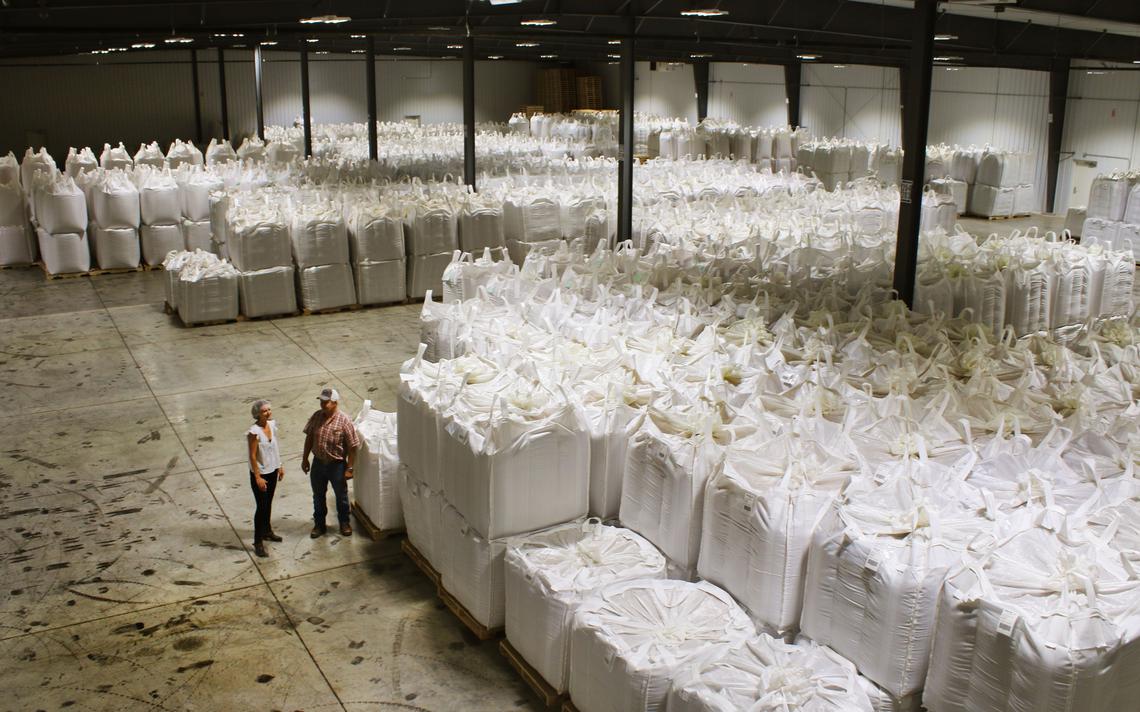

Stone Mill LLC seems to be an island of prosperity amid the stormy seas of agricultural commodity prices and trade woes.
The Richardton food manufacturer is in what the food industry is called the “whole, clean” ingredient market. That market has been exploding in recent years due to perceived health benefits. The company produces organic and non-GMO flaxseed (brown and yellow), garbanzo beans (chickpeas), lentils, quinoa, chia and radish seed.
The company in January started up a flax cleaning line in a multi-million flax and pulse crop processing plant expansion that will use less labor. The plant includes high-tech cleaning and pasteurization equipment. They expect to add a pulse line in 2019 and will have room for two more.
The new plant, in a town of 800 with relatively low unemployment because of its proximity to oil jobs, is led by Daneen (Hoff) Dressler, vice president, and her husband, Ty Dressler, director of operations, both age 38. (They were high school sweethearts.)
A year ago, the company hired Jessica Schutt, a Dickinson, N.D., native, as director of food safety and quality. Schutt holds a doctorate in pharmacy from North Dakota State University.
“Simplicity is king, and our ingredients are the most simple you can obtain – straight from the farmers’ fields,” Daneen says. “No additives. No preservatives, just clean, raw grains.”
Dressler describes Stone Mill as the “brand behind the brand,” providing primarily flaxseed for organic and conventional markets. They sell whole ingredients and raw ingredients – packaging and storing them for food manufacturers.

Stone Mill was started in 1979 as an ironworks manufacturer during an earlier oil boom. Daneen’s parents – farmers and entrepreneurs Ambrose and Charlotte Hoff – still carry the titles of chief executive officer and chief financial officer, respectively.

